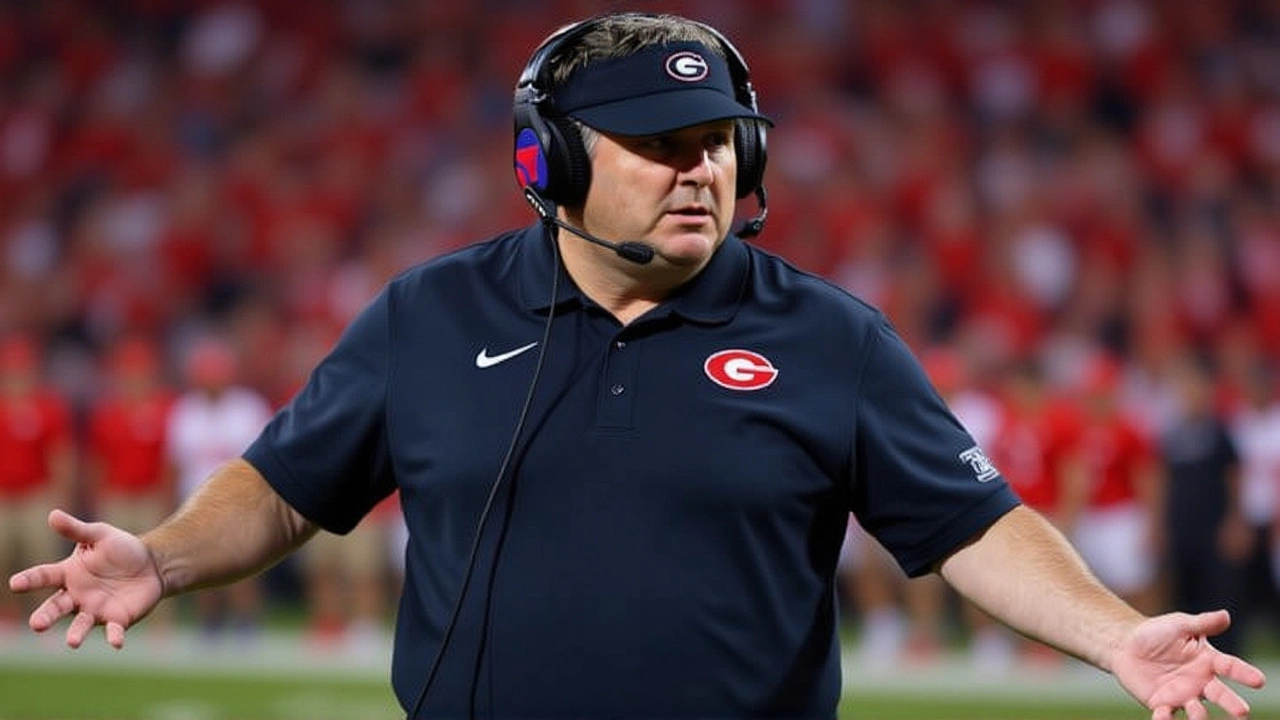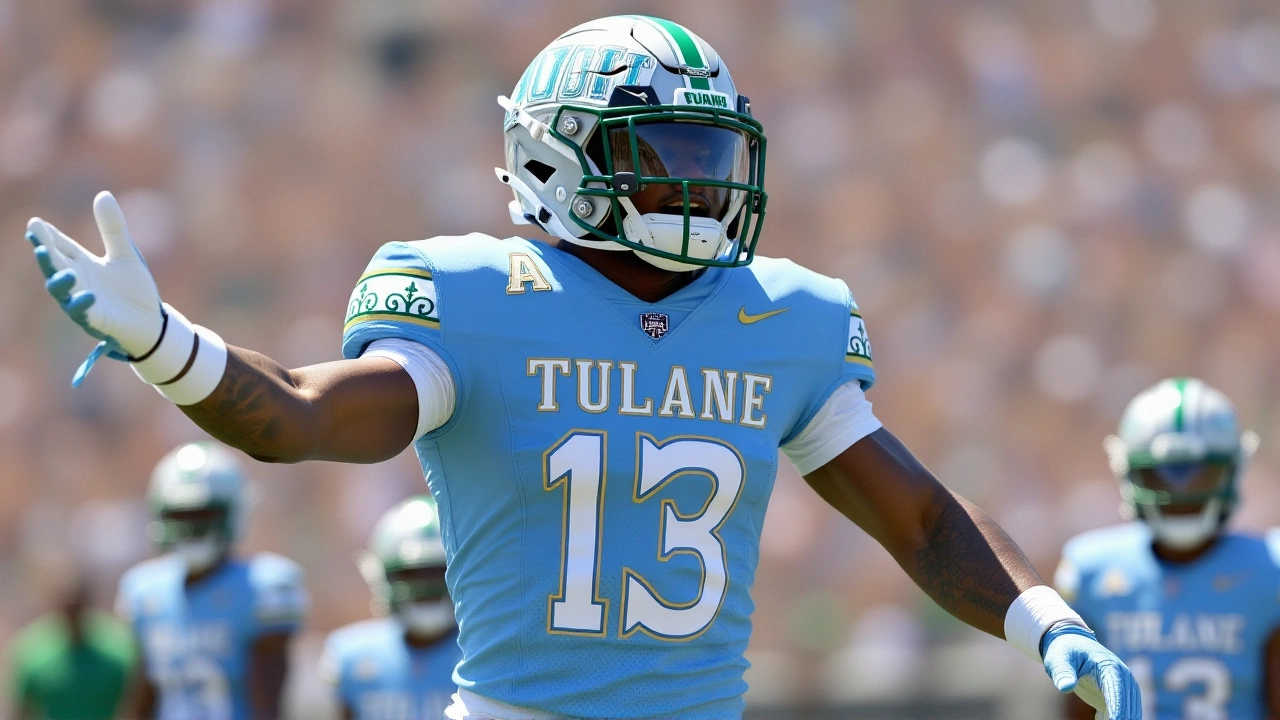When the College Football Playoff Committee released its Week 13 rankings on November 18, 2023, fans didn’t just raise an eyebrow—they erupted. The Miami Hurricanes, fresh off a 27-24 win over the Notre Dame Fighting Irish in September, sat at No. 13. Meanwhile, the team they beat? No. 9. And it wasn’t a fluke. It was policy.
Head-to-Head Doesn’t Matter? Welcome to the New CFP Math
Here’s the thing: Miami won the game. Plain and simple. No overtime. No controversy. No disputed calls. Just a 27-24 victory on the road in South Bend. But the committee didn’t care. Not really. What they cared about was who Miami lost to—and who Notre Dame lost to.
Miami’s two losses? To unranked Louisville Cardinals and SMU Mustangs. Notre Dame’s? To Miami and No. 3 Texas A&M Aggies. That’s the entire difference. The committee, according to ESPN and Sports Illustrated, is clearly rewarding strength of schedule through losses, not victories. As Sports Illustrated put it bluntly: “The playoff selection committee is clearly rewarding who you lost to, not who you defeated, and Miami is paying the price.”
The Numbers Don’t Lie—But the Committee Seems to Ignore Them
Let’s look at the stats. According to analysis from the Irish Breakdown YouTube channel, Notre Dame’s defense ranks No. 9 nationally—better than Alabama’s No. 12. Their offense? No. 3 in points per play. Alabama? No. 34. Notre Dame’s offense converts yardage into points more efficiently than 98% of FBS teams. Miami? They’re not perfect. But they’re not a bottom-10 team. They’re 8-2. They beat a top-10 opponent. And yet, they’re ranked behind teams like Vanderbilt Commodores and USC Trojans.
And here’s the kicker: if the playoffs started today, the bracket would have Miami Hurricanes traveling to face Ole Miss Rebels (No. 6) in the first round. Meanwhile, Notre Dame Fighting Irish would host Oklahoma Sooners (No. 8), a team with the 40th-ranked total offense and 82nd in real scoring offense. The committee’s logic? Notre Dame’s losses were to better teams. Miami’s weren’t. So Notre Dame gets the benefit of the doubt. Miami gets the door slammed in their face.

What Miami Needs to Survive
For Miami to even make the ACC Championship Game, they need a perfect storm. Four things must happen: Miami must win out. Virginia Cavaliers must lose all remaining games. Georgia Tech Yellow Jackets and SMU Mustangs must lose all theirs. And Duke Blue Devils must lose at least one of their last two. That’s not a stretch—it’s a miracle.
Even then, ESPN’s Football Power Index gives Georgia Tech a 35.3% chance to win the ACC title and Virginia a 32.7% chance. Miami? They’re not even in the top three. Their path is a maze with no exit.
The Bigger Picture: A System in Crisis
This isn’t the first time the CFP committee has made a baffling call. But it’s the first time a team has beaten a top-10 opponent and still landed outside the top-12. That’s historic. And it’s not just fans who are upset. Analysts across the board are calling it broken.
Consider this: Alabama Crimson Tide lost to No. 2 Georgia Bulldogs in overtime. They’re ranked No. 10. They lost to the eventual national champion. But they’re still in the top 10. Why? Because they’re Alabama. Because they’ve got tradition. Because their losses were to elite teams. Meanwhile, Miami—a program with three national titles in the last 30 years—is punished for losing to teams that didn’t make the top 25.
It’s not about résumé. It’s about perception. And perception, right now, is built on a flawed algorithm: “Don’t lose to bad teams.” Not “win the big games.” Not “prove you can beat the best.” Just “don’t mess up against the also-rans.”

What’s Next? Selection Sunday Looms
Selection Sunday is December 3, 2023. That’s when the committee will decide who plays for the national title. And if the current rankings hold, Notre Dame will be in. Oklahoma will be in. Ohio State, Texas A&M, Georgia, Oregon—all likely.
Miami? They’ll be watching from home. And they’ll be watching with good reason: they beat the team they’re ranked below. They did everything right. And the system didn’t care.
It’s not just unfair. It’s unsustainable. College football fans aren’t dumb. They know when the rules are rigged. And right now, the rules are rigged against the team that actually won the game.
Frequently Asked Questions
Why does the CFP committee value losses over wins?
The committee claims it evaluates “quality wins” and “strength of schedule,” but in practice, it rewards teams that lose to ranked opponents—treating those losses as proof of a tough schedule. Miami’s loss to unranked Louisville and SMU is seen as a flaw, while Notre Dame’s losses to Miami and Texas A&M are framed as evidence of competitive toughness. It’s a system that prioritizes narrative over results.
Can Miami still make the playoff?
Technically, yes—but it’s nearly impossible. Miami would need to win all remaining games, while at least three teams ahead of them (including Notre Dame and Oklahoma) must lose. Even then, the committee has shown little appetite for moving teams up based on head-to-head results. The odds, per ESPN FPI, are less than 1%.
How does this affect other teams in the ACC?
It’s created chaos. Georgia Tech and Virginia now have stronger paths to the ACC title than Miami, despite losing to them. The committee’s rankings have distorted the conference’s true pecking order. If Miami finishes 11-2 with a win over Notre Dame and still doesn’t make the playoff, it could damage the ACC’s reputation and future playoff access.
What do experts say about the committee’s methodology?
Analysts like those from Irish Breakdown and Sports Illustrated argue the system is outdated. They point out that modern analytics favor teams with explosive offenses and dominant wins—not teams that squeak by against ranked opponents. The committee’s reliance on subjective “eye test” and loss quality over objective metrics like net points or win probability is increasingly out of step with fan expectations and data-driven analysis.
Has this ever happened before in CFP history?
Never. Miami is the first team to defeat a top-10 opponent and finish outside the top-12 in CFP rankings. Previous controversies—like 2017’s Alabama vs. Oklahoma debate—still involved teams with more wins or stronger overall résumés. Miami’s case is unique: a clear head-to-head win, identical record, and a ranking that defies logic. It’s a historic injustice.
What could change the committee’s mind before December 3?
If Notre Dame loses to either Oklahoma Sooners or Texas Tech Red Raiders in their final two games, the committee may be forced to reevaluate. A loss to an unranked team would shatter their “quality loss” narrative. Meanwhile, if Miami wins out and beats a ranked team like NC State Wolfpack (who they already beat), the pressure to move them up could become impossible to ignore.
